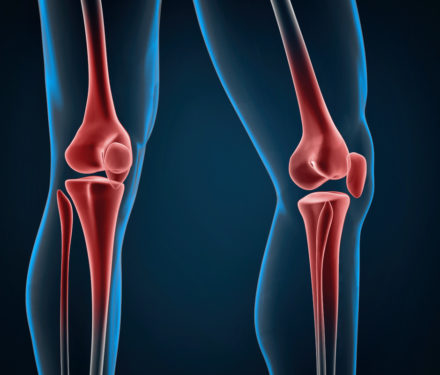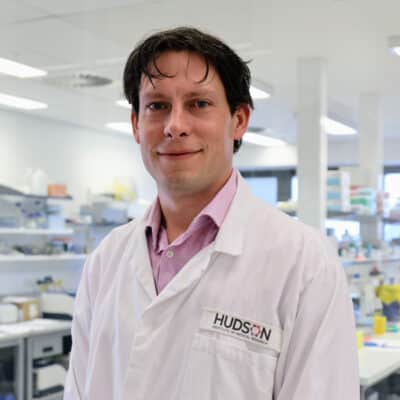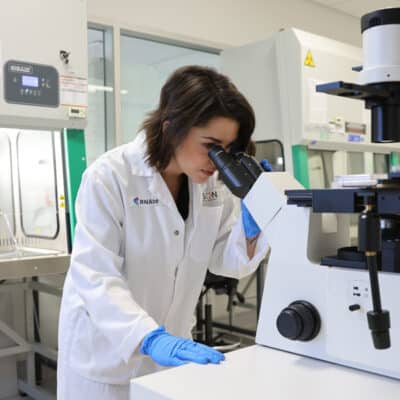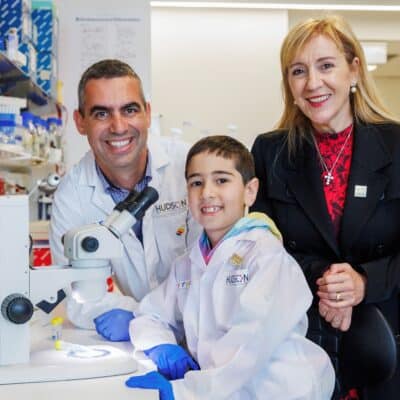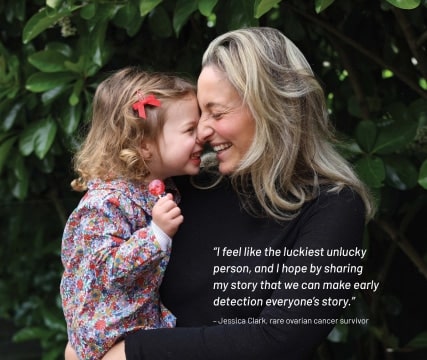Flicking the inflammation off-switch
By Hudson Institute communications
In a long-term collaboration between researchers and industry, an exciting first step has been made in the creation of a new generation of medicines for auto-immune diseases using one of our body’s own anti-inflammatory off-switch molecules.

The immune system produces many highly potent anti-inflammatory molecules, but they are often fragile, short-lived, and lack drug-like properties. Interleukin-37 is one such molecule produced by the body to turn off inflammation.
Together with partner F. Hoffmann-La Roche (Roche), the multidisciplinary research team from Hudson Institute of Medical Research, Monash University Biomedicine Discovery Institute (BDI) and Monash University’s Department of Paediatrics has harnessed their Fc-fusion platform to engineer the next generation of Interleukin-37, one that retains anti-inflammatory potency, is highly stable and has an excellent therapeutic likeness.
The findings from the research collaboration have now been published in Cell Chemical Biology.
Developing auto-immune medicines
Associate Professor Claudia Nold at the Hudson Institute of Medical Research, one of the lead scientists, said: “Working in the field of inflammation, we were delighted to partner with Roche, a Swiss pioneer in healthcare since 1896. Our collaboration between academia, clinicians and industry partners such as Roche enabled us to leverage our combined expertise and solve biomedical questions to get a step closer in developing innovative medicines for patients suffering from inflammatory diseases.”
A little bit of inflammation can be a good thing and is often the body’s immune system doing its job. However, when inflammation persists, or the immune system starts attacking the body’s own cells, this can lead to disease. This research aims to create a new generation of medicines for auto-immune diseases.
Auto-immune diseases characterised by inflammation
Another of the study’s lead authors, Dr Andrew Ellisdon from the Monash BDI, says many human diseases, including autoimmune conditions such as arthritis, lupus or inflammatory bowel disease, are characterised by too much inflammation.
Dr Ellisdon says there has been a gap in producing new generations of potent anti-inflammatory therapeutics for these anti-inflammatory conditions.
“The past five years have been a remarkable opportunity to collaborate and learn from Roche, a global leader in the engineering and development of biologics. Because of the data from this study, we now know how to make more stable and medicine-like versions of the body’s own anti-inflammatory off-switches,” he said.
“This study builds a solid platform to test IL-37-based Fc-fusion variants in a range of preclinical models of inflammatory and autoimmune disease. We anticipate that many of the steps undertaken in this Fc-engineering platform will be broadly applicable to other challenging and unstable biologics.”
Professor Marcel Nold, a Professor of Paediatric Immunology at Monash University and a consultant Neonatal Paediatrician at Monash Children’s Hospital, said “It is a clinician scientist’s ultimate goal to be part of research that can be translated into future patient treatments.”
Read the full paper in Cell Chemical Biology titled: Protein engineering of a stable and potent anti-inflammatory IL-37-Fc fusion with enhanced therapeutic potential.
Contact us
Hudson Institute Communications
t: + 61 3 8572 2761
e: communications@hudson.org.au
About Hudson Institute
Hudson Institute’ s research programs deliver in five areas of medical need – inflammation, cancer, reproductive health, newborn health, and hormones and health. More
Hudson News
Get the inside view on discoveries and patient stories
“Thank you Hudson Institute researchers. Your work brings such hope to all women with ovarian cancer knowing that potentially women in the future won't have to go through what we have!”


